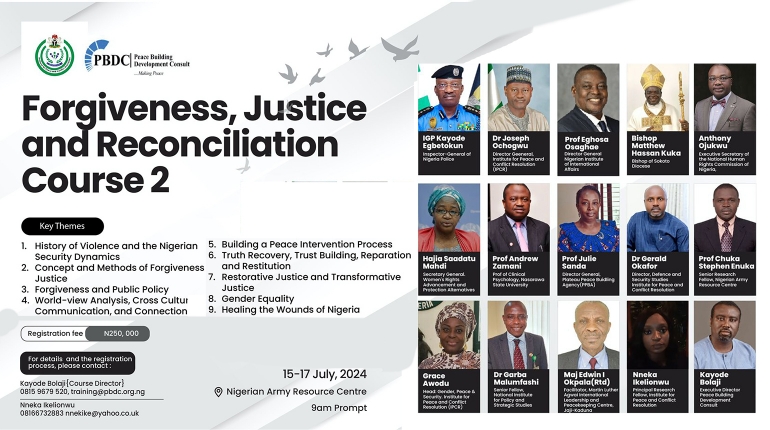
Forgiveness, Justice and Reconciliation Course 2
In a nation where the scars of violence run deep and communities are torn apart by a history of conflict and mistrust, how do we begin to preach "One Nigeria"? The wounds inflicted by crimes against our ancestors and the horrors of mass genocide still haunt us. How can we dare to ask people to build a great nation alongside those who have committed unspeakable crimes? Can we truly rebuild trust and socio-economic relationships between regions that have fought against each other for so long?
Conflicts in Nigeria are not just disputes over resources or power; they are deeply rooted in our beliefs, perceptions, and projections. These conflicts have left indelible marks on our collective psyche, shaping how we see "the other." To build a better nation, we must get to the root of these violent crimes. Healing the wounds of history through forgiveness, justice, and reconciliation is not just a lofty ideal—it's a necessity.
Political realists might scoff at the idea of forgiveness, seeing it as impractical or naive. But the increasing number of apologies and acts of forgiveness between nations since the end of the Cold War shows a shift towards a new form of sustainable conflict resolution. Take South Africa, for instance. After apartheid, the nation was in pieces. Yet, through the South African Truth and Reconciliation Commission (TRC), led by figures like Archbishop Desmond Tutu and President Nelson Mandela, the country embraced forgiveness as a tool for national healing. Victims and perpetrators came together to share their stories, confront the past, and pave the way for a united future. Mandela famously asserted, "There is no future without forgiveness."
If we leave our historical wounds unhealed, we perpetuate a cycle of violence, turning victims into future perpetrators. This cycle must be broken. By understanding and applying the principles of forgiveness, we can transform our communities and create a lasting impact. We must move beyond retributive justice to embrace a greater cause: community building.


